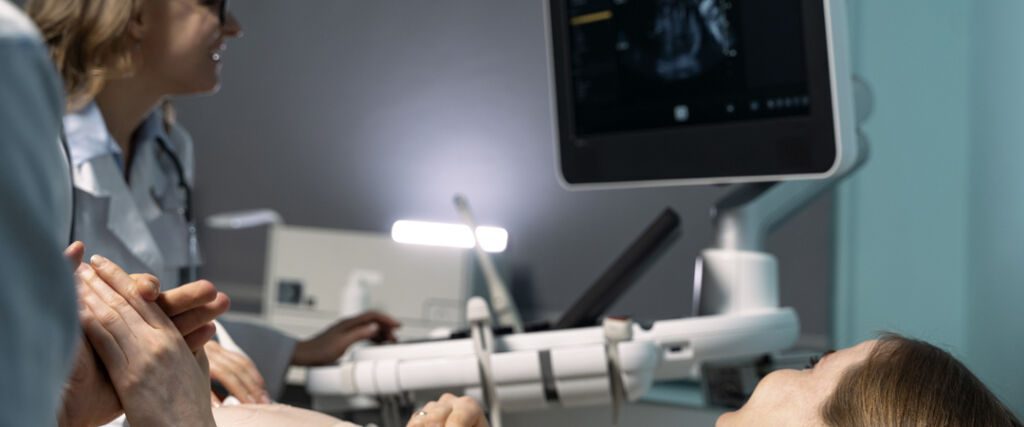
Women’s health is of paramount importance, and gynaecological and obstetric care plays a vital role in every woman’s wellbeing. Whether you’re looking for tips on how to stay healthy or advice on how to deal with specific problems, this article has got you covered.
In this article, we’ll bring you the latest women’s health tips and advice on gynaecology and obstetrics. We’ll cover topics such as preventing and treating common gynaecological infections, contraception, preparing for pregnancy and much more.
Our aim is to provide you with valuable and reliable information, backed up by in-depth research and medical expertise. We want to help you make informed decisions about your health and take the best possible care of yourself.
Whether you’re a young woman looking for advice on contraception or a mum-to-be curious about the different stages of pregnancy, this article is here to help you on your women’s health journey. Get ready to discover practical tips and advice for a healthy and fulfilling life.
UNDERSTANDING GYNAECOLOGY AND OBSTETRICS
Gynaecology is the branch of medicine that focuses on women’s reproductive health, while obstetrics focuses on pregnancy and childbirth. These two fields are closely related and play a crucial role in women’s health and well-being.
Gynaecology covers a wide range of issues including gynaecological infections, menstrual disorders, fertility problems and preventative care. It is important for women to have a good understanding of their own gynaecological health so that they can take the necessary steps to prevent problems and detect early signs of underlying disease.
Obstetrics is the medical management of pregnancy from conception to delivery. It is important for pregnant women to receive appropriate antenatal care to ensure a healthy pregnancy and an uncomplicated birth.

COMMON WOMEN’S HEALTH PROBLEMS AND CONCERNS
Women can face a variety of specific health problems that require special attention. Common gynaecological problems include vaginal infections, urinary tract infections, uterine fibroids, ovarian cysts and menstrual disorders.
Vaginal infections, such as yeast infections and bacterial vaginosis, can cause itching, burning and abnormal discharge. It’s important to know the symptoms and see a doctor for diagnosis and treatment.
Urinary tract infections are also common in women and can cause pain when urinating, frequent urination and a burning sensation. Drinking plenty of fluids, urinating regularly and maintaining good personal hygiene are important preventative measures.
Uterine fibroids are non-cancerous tumours that develop in the uterus. They can cause pelvic pain, heavy menstrual bleeding and difficulty getting pregnant. Treatment for fibroids can vary depending on their size and location.
Ovarian cysts are fluid-filled sacs that form on the ovaries. Most ovarian cysts are benign, but some can cause pain and require medical attention. It’s important to monitor ovarian cysts and see a doctor if you have any symptoms.
Menstrual problems, such as painful, heavy or irregular periods, can be a sign of hormonal imbalance or other health problems. It’s important to see a doctor to find out the cause and get the right treatment.
KEY TIPS FOR WOMEN’S HEALTH
Women’s health is not limited to the specific problems mentioned above. There are also general tips and advice that can help maintain good health throughout life.
A balanced and varied diet is essential to provide your body with the nutrients it needs. We recommend eating a variety of fruits, vegetables, whole grains, lean proteins and healthy fats.
Regular exercise is also important for good health. Physical activity helps to strengthen muscles, maintain a healthy weight and reduce the risk of chronic diseases such as heart disease and diabetes.
Taking care of your mental health is also important. Stress, anxiety and depression can affect a woman’s overall health. Taking time out to relax, engaging in activities that bring you joy, and seeking professional help when needed are all important steps in maintaining good mental health.
Finally, it’s important to see your doctor regularly for check-ups and follow-up. Regular gynaecological examinations and screening tests, such as pap smears and mammograms, can help detect potential health problems at an early stage, when treatment is often more effective.
PREPARING FOR A GYNAECOLOGICAL APPOINTMENT
A visit to the gynaecologist can be a source of anxiety for some women, but good preparation can help make the experience more comfortable.
Here are some tips to help you prepare for a gynaecological appointment:
- Write down any symptoms or concerns you have so you can discuss them with your doctor.
- If you are taking any medicines, bring a complete list of them with you so that your doctor can take them into account during the examination.
- Prepare a list of questions you would like to ask your doctor so that you don’t forget anything during your appointment.
- Wear comfortable clothes that are easy to take off to make the gynaecological examination easier.
- Try to relax and stay calm. Remember that the doctor is there to help you and answer any questions you may have.

UNDERSTANDING THE STAGES OF PREGNANCY
Pregnancy is an exciting and unique time in a woman’s life. Understanding the different stages of pregnancy can help expectant mothers prepare for the physical and emotional changes that lie ahead.
Pregnancy is generally divided into three trimesters, each lasting about three months. During the first trimester, the body goes through many changes, such as morning sickness, tiredness and tender breasts. This is when most women find out they’re pregnant.
In the second trimester, many of the uncomfortable symptoms of the first trimester disappear and most women feel better. The belly begins to round and the baby’s movements can be felt for the first time.
The third trimester is characterised by rapid growth of the belly and sometimes by discomfort, such as backache and difficulty sleeping. The baby usually positions itself for birth, which can cause pressure on the bladder.
TIPS FOR A HEALTHY AND COMFORTABLE PREGNANCY
Pregnancy is a time when it’s important to take care of yourself and follow certain steps to ensure a healthy, comfortable pregnancy.
A balanced diet is essential during pregnancy to provide the nutrients your baby needs to develop. Foods rich in iron, calcium, folic acid and vitamins are recommended.
Exercise during pregnancy is also beneficial, but it’s important to talk to your doctor before starting any exercise programme. Activities such as swimming, walking and prenatal yoga can help maintain fitness and reduce pregnancy-related pain and discomfort.
Rest is also important during pregnancy. We recommend getting enough sleep and taking regular breaks to rest and relax.
It’s also important to follow your doctor’s advice about screening tests, vitamin supplements and regular antenatal care. Your doctor will be able to monitor you and your baby’s health throughout your pregnancy.
ROUTINE GYNAECOLOGICAL PROCEDURES AND TREATMENTS
In addition to preventive care and screening tests, there are several routine gynaecological procedures and treatments that some women may need.
Cervical smears are an important screening test to detect precancerous or cancerous cells of the cervix. They are generally recommended for women over the age of 21.
Mammograms are breast cancer screening tests that involve X-rays of the breasts. They are recommended for women aged 40 and over and should be done regularly.
Pelvic ultrasounds are often used to assess the health of the internal reproductive organs, such as the womb and ovaries. They can help detect cysts, fibroids and other abnormalities.
In some cases, more invasive gynaecological procedures, such as endometrial ablation or laparoscopic surgery, may be needed to treat specific health problems. In these cases, it’s important to discuss the risks and benefits with your doctor before making a decision.
THE IMPORTANCE OF REGULAR CHECK-UPS AND SCREENING
Regular gynaecological check-ups and screenings are essential for women’s health. These tests can detect potential health problems at an early stage, when treatment is often more effective.
Cervical smears are one of the most common types of screening. They detect precancerous or cancerous cells in the cervix. Cervical smears are recommended every three years for women aged 21 to 65.
Mammograms are important for detecting breast cancer. Mammograms are recommended every two years from the age of 50. Women at higher risk of breast cancer may be encouraged to start having mammograms earlier.
Screening for osteoporosis, chlamydia and high blood pressure is also important for women’s health. Your doctor will be able to recommend appropriate screening based on your age, medical history and risk factors.
CONCLUSION: EMPOWERING WOMEN THROUGH ADEQUATE HEALTH CARE
Women’s health care, particularly gynaecology and obstetrics, plays a crucial role in the well-being and quality of life of every woman.

